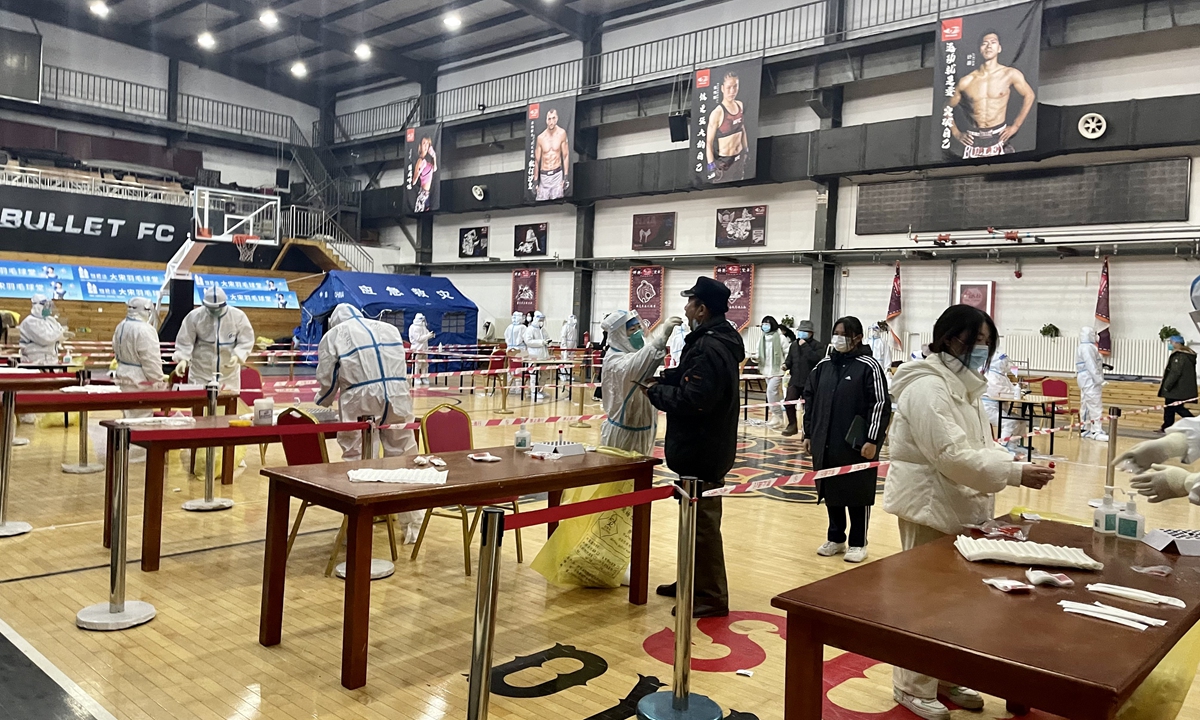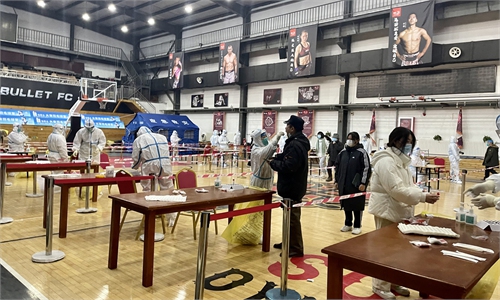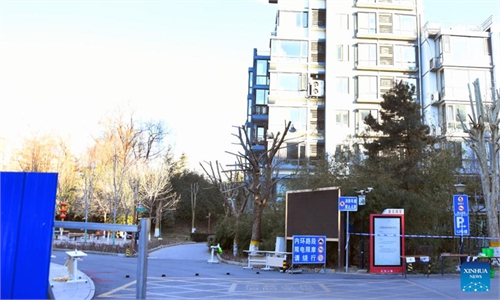Latest COVID-19 outbreak in Beijing caused by intl mail infected by Omicron and imported cold-chain goods with Delta

Residents take nucleic acid tests in Beijing Photo: CFP
The latest round of epidemic in Beijing involving 23 local COVID-19 cases so far was caused by two different sources of infection, with one from international mail caused by Omicron variant and the other from imported cold-chain goods infected by Delta strain, Beijing authorities said on Friday. The city's Party chief on Friday called for the fastest and most effective measures to curb the epidemic.
After chairing the meeting on COVID-19 prevention and control on Friday, Cai Qi, secretary of the Beijing Municipal Committee of the CPC, went to Fengtai district in Beijing to inspect the related work and visit frontline epidemic prevention working staff.
Cai called for prompt, strict and tight action to control risks and block the chain of transmission as well as the fastest and most effective measures to ensure the safety of the public and make sure the Beijing 2022 Winter Olympic Games proceeds safely. The epidemic prevention situation in Beijing is severe and complex as it appears to be spreading from multiple points, Beijing authorities said at Friday's press briefing.
Since January 15, Beijing has reported 23 local COVID-19 cases including 18 confirmed cases and five asymptomatic carriers, involving four districts -- Haidian, Chaoyang, Fengtai and Fangshan.
Among the 23 cases, five were infected with Omicron due to mail from overseas, which were all located in Haidian district; while the other 13 confirmed cases and five asymptomatic carriers were infected by the Delta variant triggered by imported cold-chain goods in Chaoyang, Fengtai and Fangshan districts.
Cai stressed the importance to run ahead of the virus and called for a quick epidemiological investigation and tracing of the source of the epidemic. He ordered the screening of cold-chain goods related to the epidemic, tracing the source and flow of goods, and sealing them up in time to prevent viral spread. He also called for the full screening of employees related to the cold-chain industry and their roommates.
The southwestern suburban cold storage where workers were detected with coronavirus and the surrounding community in Fengtai have been put under control due to the epidemic. Cai stressed that Fengtai district at present has been the most critical area in Beijing in epidemic prevention and control and the screening scope needs to be expanded further.
Authorities should strengthen the supervision of cold-chain goods markets and increase the sampling and testing frequency. It is strictly prohibited to mix-package, mix-transport or store the imported cold-chain goods and domestic goods. Any cases involved concealing sources and illegal sales shall be promptly dealt with in accordance with the law.
Cai pointed out that management should be strengthened in logistics and personnel involved with the Winter Olympic Games. Medical institutions at all levels should strengthen their work to prevent in-hospital infection. Authorities will tighten management over small pharmacies and clinics, and implement measures such as follow-up visits and nucleic acid testing, and ensure market supply and maintain stable prices.


